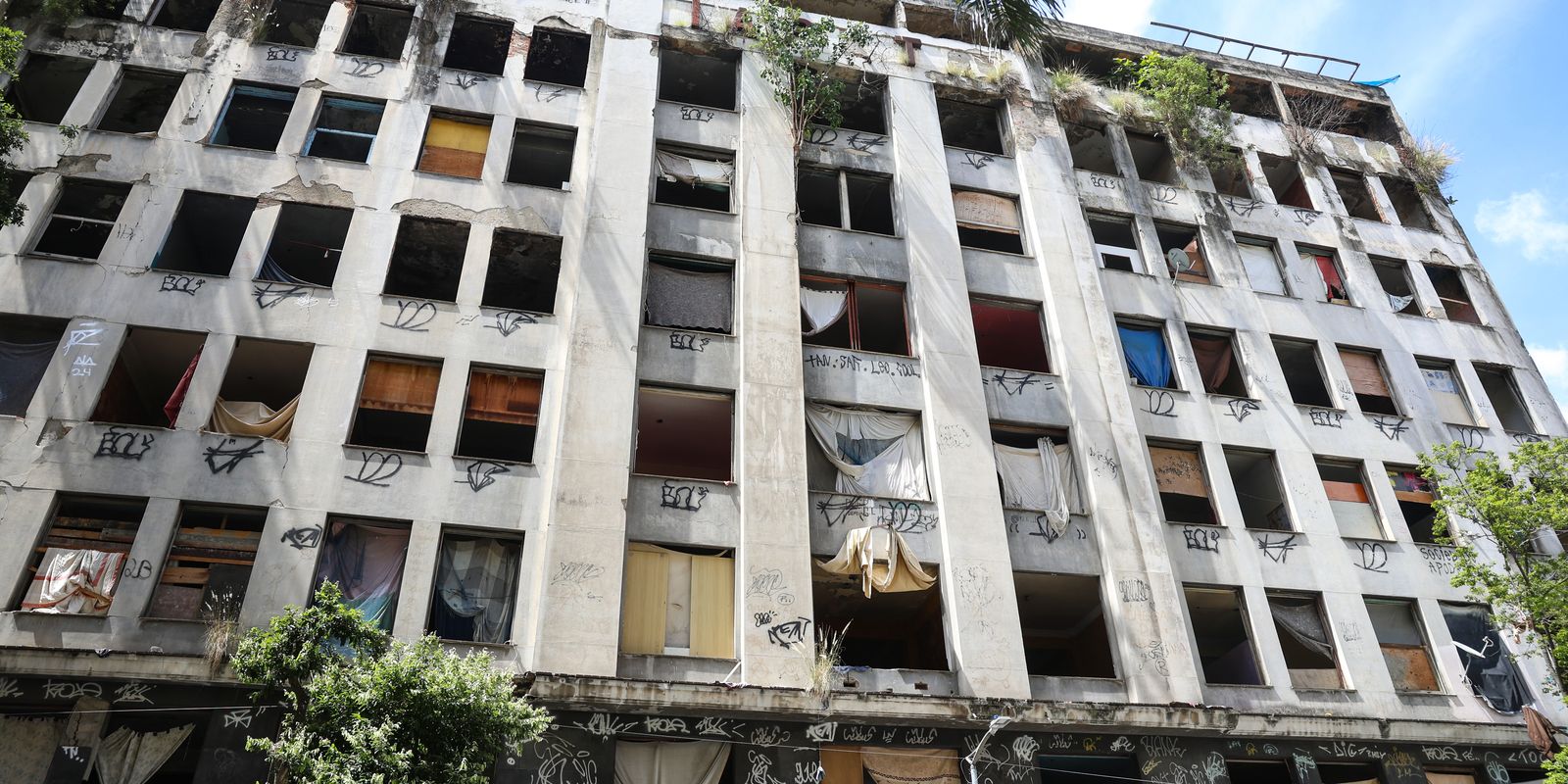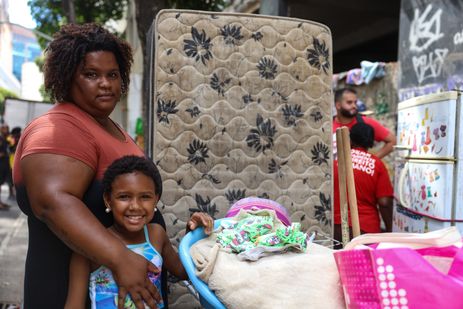The deactivated building of the National Social Security Institute (INSS) where more than 100 families live, in the center of the city of Rio de Janeiro, is being vacated this Monday (16). The building, at Avenida Venezuela, 53, nicknamed Ocupação Zumbi dos Palmares, had been occupied, intermittently by homeless people, for two decades.
The repossession was requested by the INSS, which has not used the building for 40 years, and determined by the 2nd Federal Court of Rio de Janeiro, in August this year. On November 22, the Court set the date for the building to be vacated.
According to the Court, the building, which is officially closed by the Municipal Civil Defense, poses risks to families, due to the structural situation of the building.
The Land Solutions Commission of the Federal Regional Court of the 2nd Region (TRF2) acted as mediator and decided that the families should be housed in public shelters or receive social rent.
The eviction began early in the morning, when residents voluntarily removed their belongings. The city hall supported the families’ departure, with a moving truck, with the commitment to deliver the belongings to the addresses provided by the people. He also registered his pets.
Police surrounded the area and closed Avenida Venezuela shortly before 8am. At around 8 am, teams from the Shock Battalion arrived at the scene, but until this report was written, they had not needed to act.
According to the coordinator of the Popular Legal Advisory Center (Najup), at the Faculty of Law of the Federal University of Rio de Janeiro (UFRJ), Mariana Trotta, who advises families, the city hall paid social rent to families on Friday -Friday, by check.
“The families are outraged at how the process was carried out. Social rent was paid on Friday by check for them to leave today. In other words, they had the weekend to look for another place. Some have not yet received social rent. Many still haven’t been able to cash the check. Also, there is no information about the definitive resettlement of families by the city hall”, said Mariana Trotta.
Occupation leader, William Bombom said that the families were unable to rent properties and have nowhere to go. Some are going to family homes and others are seeking shelter in different occupations in the center.
“We are desperate. Many people have nowhere to go. People are taking things out for fear of confrontation with the police,” he said.
Jurema Francisco Ferreira had lived in the occupation for five years with her daughter and granddaughter. “I’m going to a relative’s house. How are we going to pay rent with R$400? No one can do it, especially here in the center.”
A couple, with a baby in arms, who did not want to be interviewed for the report, was one of those who said they would seek shelter in another occupation, believing they would not be able to pay rent.
Also with no prospect of renting any property, Michele de Abreu found temporary shelter at a friend’s house. “I’ve been living here for five years. Luckily, my colleague took me in, because of my two grandchildren. But she’s already asked me to see another place to stay, because she has her husband, her children and the house is small” , laments Michele, who, without even knowing where she will be living in the coming weeks, cannot imagine life in a few years.
With a 7-year-old daughter, Rafaela Avelino found a shelter in the occupation. “I was tired of living in other people’s houses. I hope I can rent something here in the center, because my daughter studies here and I work here. I hope for a better future. That in seven years, when my daughter is 14, 15 years, she doesn’t have to go through these things”, without yet knowing what she will do until she rents a property.
Rutilene de Abreu sought the Zumbi dos Palmares occupation at the beginning of the pandemic, after losing her sources of income and the ability to pay rent. “I’m going to build a shack under the bridge, because I have nowhere to go. It’s all over”, he says, hopelessly.
According to Mariana Trotta, the TRF2 commission created a plan for eviction without dialogue with the families. She also said that the INSS, to date, has not committed to dedicating the building to social housing.
TRF2 reported that the hearings for the eviction plan involved both the Popular Defense and Legal Advisory Center – Najup, as well as representatives of residents and public bodies.
The INSS highlighted that the city of Rio de Janeiro expressed interest in acquiring the property. “But there is a need for adjustment regarding the market assessment. And this is already being addressed by the technical areas. In parallel, the INSS formalized the process of transferring management of the building to the Union Heritage Secretariat (SPU), according to established guidelines by the federal government for the allocation of properties”.
According to the institute, the priority is “to make movement safe, dignified and respectful, in a joint action between all public entities involved”.
















